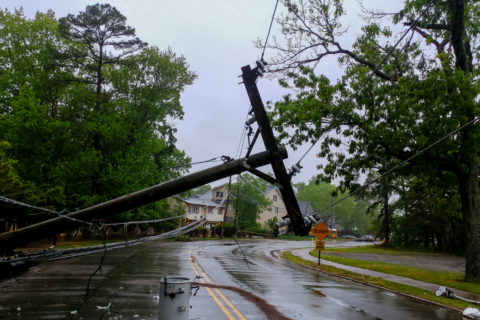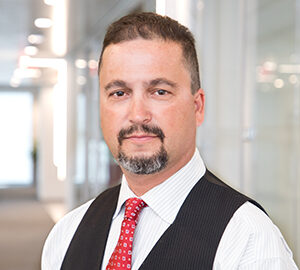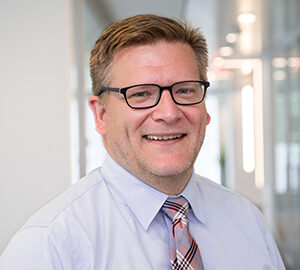By: Michael Passero, Mayor of New London, Connecticut and Lotus Yu, Senior Manager of Engagement and Partnerships at the Full Frame Initiative
At the height of the pandemic as emergency funds became available to municipalities to aid in recovery, the city of New London, Connecticut, asked a rare question. What would it look like to direct funding to address root causes – the systemic problems creating the need for services in the first place?
We knew that systems weren’t working long before the pandemic. New London, like many cities, has continued to face many of the same challenges year after year: homelessness, food insecurity, the impacts of climate change, mental health crises and more. And we knew that funding more of the same efforts wouldn’t change things – we had to do things differently.
The influx of pandemic recovery funding opened the door to a new vision for New London: a city where everyone has a fair shot at wellbeing. We are hardwired to seek out connection and belonging; safety; familiarity and predictability; influence over our environment and future; and access to food, shelter and other resources without shame or danger. And while our drive for wellbeing is universal, access to it is not. In order to be a city where everyone has a fair shot at wellbeing, things like race, gender, documentation status and other identities can’t be reliable predictors of access to wellbeing and life outcomes. Such a vision required us to do more than simply tweak existing systems – we needed to transform them.
How can governments tackle systemic problems? One opportunity is to change how funding reaches individuals and communities. Through our collaboration with the Full Frame Initiative over the last several years, New London is leveraging procurement as a vehicle for systemic transformation in our pursuit of a city where everyone has a fair shot at wellbeing. Here are some of the lessons we’ve learned in our journey and our recommendations for other cities seeking equitable change.
Timing is Everything
Systems change doesn’t need to start with action. The first step is actually looking for the right opportunity to make a shift. Look out for changes that are already happening due to demand or external pressure. These are entrypoints for greater transformation that can reduce the risk of backlash.
In New London, the opportunity to transform the procurement process for American Rescue Plan Act (ARPA) funding in human services was the first step towards broader systems change. A radically different procurement process presented an opening for reorienting practices and services toward wellbeing, rather than further entrenching the inequities built into city systems.
Involve People with Both Formal and Informal Power
Shifting systems towards wellbeing requires collaboration and support, both from those in positions of formal power as well as those with informal power within the community. Engage in conversations with those in formal positions of power to identify “first movers” who are enthusiastic about doing things differently – these supporters can help pave the way and provide support at critical times. These conversations are also key for ensuring that those who are not enthusiastic supporters will stand aside and not block constructive efforts.
Community involvement is equally important. Communities know best how systems impact their lives and the shifts needed to increase access to wellbeing. This is beyond simply input, surveys or focus groups – this requires putting community members in roles to lead the transformation. In New London, community members had roles on the ARPA Committee to review, score and award funding. Community members were also invited to apply for funding, even if they weren’t affiliated with a nonprofit organization. And with every systems change conversation, community members were invited to the table for their expertise and partnership.
Allow Space for Reflection
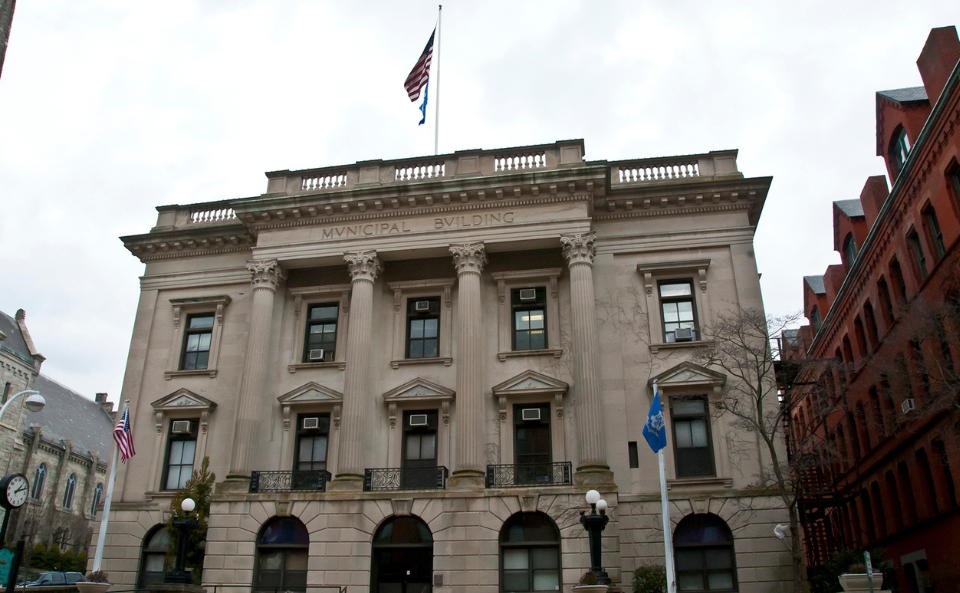
Even when everyone shares the same vision of transforming systems, it’s not enough to simply want to do things differently. Our mental models – the ingrained narratives about the ways we’ve always done things in the past – will pull us back to business as usual. To sustain significant shifts over the long term, build in space for reflection to remind everyone of the vision of creating a fair shot at wellbeing.
In New London, distributing ARPA funding in a radically different way required supporting proposal reviewers to avoid snapping back to what had traditionally been funded. Spaciousness in the review process was necessary so the review committee could ask questions such as, “Does this proposal truly speak to the transformation we are seeking?”
Span Boundaries
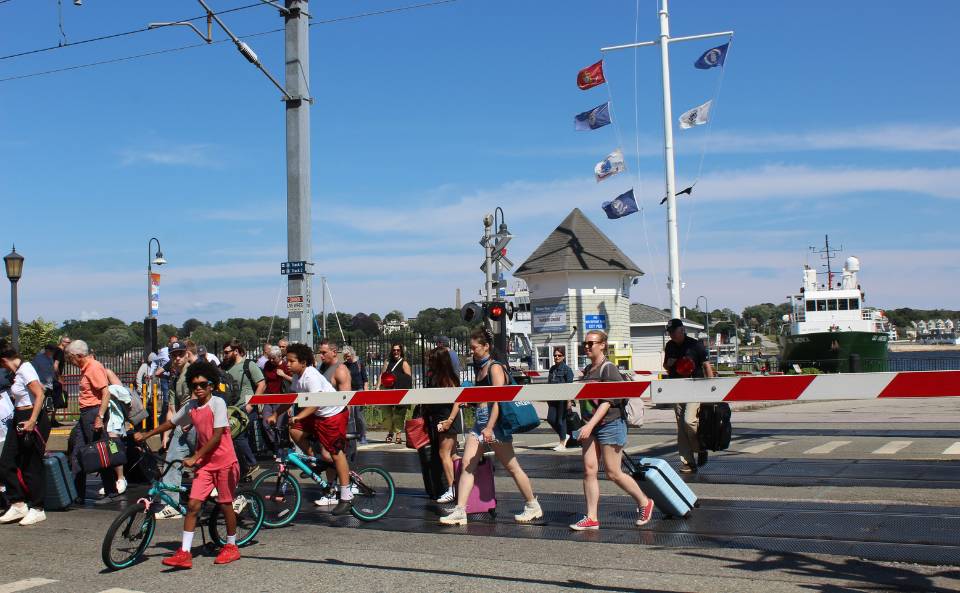
Systems are interconnected and city-wide systems change can’t be achieved through a single department or agency. Partnerships that span boundaries and traditional divides are needed to give everyone a fair shot at wellbeing. While New London’s systems change efforts began in human services, we sought to move beyond human services and traditionally funded organizations in several ways:
- Relationships are the infrastructure of wellbeing in a community. So, we created a special fund that was designed to support efforts to build social connectedness by individuals, business and grassroots groups.
- Creating equitable access to wellbeing is about creating thriving ecosystems. We reached out to arts institutions, small businesses, colleges and other entities in New London to explore ways to partner.
- A shared vision can sustain change. After seeding systems change efforts throughout the city, we are exploring a city-wide visioning event to engage community members and leaders.
- ARPA grantees were engaged in a Community of Practice where new relationships blossomed, creating paths for collaboration where there were none before.
Shine a Spotlight on Systemic Challenges
Traditional data collection focuses on counting (beds, people, dollars), which doesn’t capture impacts or provide the information necessary to make systemic changes. As part of funding, ARPA grantees shared and captured data on rules, policies and processes that are getting in the way of people who are systems-involved. This set of information provides valuable data for the city on where to focus systems change efforts.
Funding and procurement practices have tremendous power to move cities toward giving everyone a fair shot at wellbeing. They also provide an entrypoint to the systems-level change that makes better outcomes inevitable. Visit the Full Frame Initiative’s website for tools and resources about systems change and wellbeing. To begin harnessing procurement as a lever for city-wide change, explore Full Frame Initiative’s guide to centering wellbeing in procurement. For leaders in human services, the Contracting for Transformation Toolkit provides examples, scoring guides and other tools rooted in New London’s systems change process.

